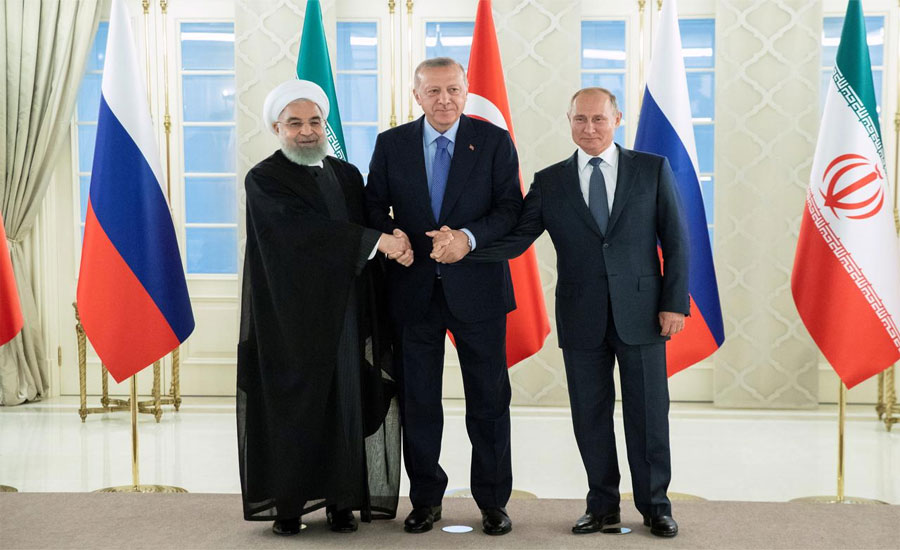Turkey, Russia, Iran agree steps to ease tensions in Syria's Idlib despite lingering differences

ANKARA (Reuters) - The leaders of Turkey, Russia and Iran meeting in Ankara on Monday agreed to try to ease tensions in northwest Syria’s Idlib region, but disagreements between the countries appeared to linger, especially over the threat from Islamic State.
The summit of the three countries - all of whom have allies fighting in Syria’s ruinous eight-year-old war - aimed to find a lasting truce in Syria. Recent attacks by Syrian government forces risk deepening regional turmoil and pushing a new wave of migrants towards Turkey.
“We are in a period when we need to take more responsibility for peace in Syria, when we (three countries) need to carry more weight,” Turkey’s Tayyip Erdogan said, adding that all three leaders were in agreement that a political solution was necessary to end the crisis in Syria.
Russian President Vladimir Putin and his Iranian counterpart Hassan Rouhani have supported Syrian President Bashar al-Assad against the rebels. Erdogan, along with the United States, and European and Arab allies, has supported different rebel factions.
On Monday, the three leaders said in a joint statement that they were alarmed about the risk of further deterioration of the humanitarian situation in and around Idlib and had agreed to take “concrete steps” to stop violations of previously negotiated agreements between the three countries.
Disagreements appeared to persist, however, in particular over the threat in Syria from Islamic State, which Erdogan dismissed completely while Putin expressed concern.
“Of course, we are worried by the situation in northeast of Syria, where sleeping cells of ISIS are emerging,” Putin told a joint news conference, minutes after Erdogan said that the only threat in northern Syria was from Kurdish militant groups.
The joint statement did not mention Saturday’s attacks on two of Saudi Arabia’s Aramco facilities by Yemen’s Iran-aligned Houthi group, which a Saudi-led coalition said were carried out with Iranian weapons.
However, at the joint news conference after the summit, Iran’s Rouhani called the attacks a reciprocal measure by “Yemeni people” to assaults on their country.
“Yemeni people are exercising their legitimate right of defence ... the attacks were a reciprocal response to aggression against Yemen for years,” Rouhani said.







